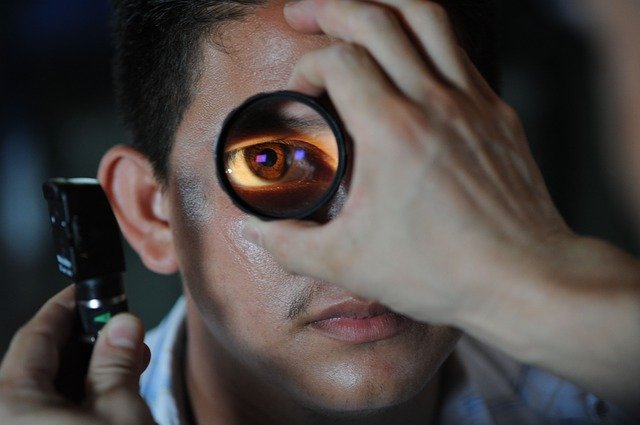The Different Types Of Eye Doctors And What They Do

Hi, I am Betty Knight, Owner of this site! I…
We all depend on our eyesight a lot more than we may realize. Without proper vision, it becomes very hard to move around let alone do the most basic work. That’s why it’s very important to go for an eye test in Sydney the minute you realize that there could be a problem with your eyes.
Some signs and symptoms that you should be worried about include:
- Distorted vision
- Double vision
- Excess tearing
- Itchiness, irritation, pain, or redness
- Bulging of one or both eyes
- Temporary or permanent decreased vision
- Loss of peripheral (side) vision
- Any accidental eye injury
Different types of eye doctors
How good your eye health is depends on whether or not you see the right eye doctor and at the right time. Several factors can affect a person’s eyesight and often, these eyesight-stealing conditions are unnoticeable at first. This makes them difficult to be detected earlier when they are easier to treat. That is why it’s so important to visit a specialist for a complete medical eye exam. The different types of eye doctors are:
- Opticians
These health professionals are trained to design, supply, fit, and dispense eyeglass lenses, frames, contact lenses, artificial eyes, and other visual aids that correct eyesight. Opticians interpret prescriptions given by optometrists or ophthalmologists. They don’t test, diagnose, or treat eyesight problems.
- Optometrists
These eye doctors provide primary vision care that ranges from eyesight testing and correction, as well as diagnosing, treating, and managing changes in vision caused by eye problems. Optometrists examine eyes for vision defects, signs of injury, and other problems relating to general eye health. They also have the capacity to detect certain eye abnormalities and provide visual rehabilitation. Some optometrists are also involved in scientific research into the causes of and the cures of different eye conditions. To establish contact with an optometrist, a quick search for “Minneapolis optometrists” (or wherever you reside) will put you in touch with an experienced professional in your area who can cater to your eye care needs.
Optometrists have the initials O.D (Doctor of Optometry) after his/her name.
- Ophthalmologists
Ophthalmologists are licensed to practice medicine and surgery so they can provide the full spectrum of eye care. They offer the same services as optometrists on top of which they can also perform eye surgeries. Even though ophthalmologists are specialized medical doctors, some of them chose a sub-specialty where they’re required to further their education in a specific area of eye care. Some of the areas where ophthalmologists can specialize include retina, cornea, glaucoma, neurology, plastic surgery, etc.After completing one or two years of special training, he/she will be called a subspecialist.
Ophthalmologists have the initials Eye M.D after their name.
- Orthoptists
Orthoptists are certified allied health professionals who work under the supervision of ophthalmologists to evaluate and treat eye problems, with an emphasis on binocular vision (using both eyes to see) and eye movement problems. Orthoptists are mostly found in a pediatric ophthalmology setting.
- Other specialists…
Cornea specialist
Corneas are the clear protective layers on our eyes that act as a lens to focus light at it gets into our eyes.
These professionals can diagnose and treat corneal eye conditions like keratoconus and Fuchs’ dystrophy. Cornea specialists can also perform surgeries such as refractive surgery and corneal transplantation.
They can also see people who have complicated contact lens fittings.
Glaucoma specialist
Glaucoma specialists treat glaucoma which is an eye condition that causes fluids to build up in the eyes. As it builds up, the fluid causes pressure to build up inside the eyes, and this damages the optic nerve.
Retina specialist
Retinas are the thin layers of tissue found on the inner part at the back of the eyeball. These receive light and send visual signals to the brain for interpretation.
Retina specialists deal with diagnosing and treating retinal eye conditions. These procedures may involve surgically repairing retinas that have been torn or detached. Additionally, retina specialists can treat conditions of the vitreous, a gel-like substance found in our eyes.
Conclusion
When it’s time for you to go for an eye check-up, ensure that you visit the right eye care professional for your problems. Opticians, optometrists, ophthalmologists, etc. all play important roles in improving eye care for patients. However, their level of training and expertise differ so do the services they offer. You must consult with the appropriate eye care professional to get the care you need.
What's Your Reaction?
Hi, I am Betty Knight, Owner of this site! I am a 'nearing 30-year-old', happily married to 1 awesome man. We live in the beautiful tourist town of Franklin NY.



